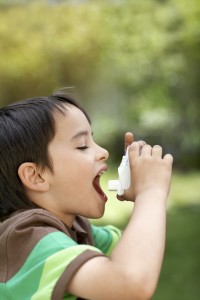Obesity among teenagers is a growing problem in the United States. It’s estimated that 30% of teenagers are overweight and another 15% are obese.
Many parents and doctors focus on the physical effects of obesity, but what about the psychological and emotional ramifications? Obesity can lead to heart disease, asthma, diabetes, and hypertension, but its depression, low self esteem, anxiety and poor body image that should be the greater concern for most.
Recent studies have concluded that obese teens have considerably lower self esteem than their non-obese peers. The difference in the two groups is most evident among 14 year olds, which also happens to be a critical time for teens because it is when they develop their sense of self worth. It is also an age where peers can be most cruel. Teasing, taunting, and poor treatment from other kids can also contribute to depression and other psychological issues.
Teens with low self-esteem often feel lonely, nervous, or are generally sad. They are also more inclined to experiment with cigarettes, alcohol, and drugs. They often become depressed, which causes them to withdraw from social activities with friends and family and lose interest in activities they once enjoyed.
There are a variety of factors that have contributed to a rise in obesity among teens. While genetics play a role for some, poor diet and a sedentary lifestyle are often the cause for most. Teens today consume too much junk food and sugary drinks and don’t exercise as much as in previous generations. Temptations from television, video games, and computers are often cited as the reasons for a decrease in physical activity.
Professionals suggest that parents of obese teens engage their children in an open dialogue about the issue. Together, parents and teens can work on a plan that is attainable. Efforts to fix the problem should focus on lifestyle issues rather than a calorie count because attempting to impose a strict diet could contribute to the teen’s poor self esteem. Incorporate the assistance of a medical professional, but allow the teen to take charge during visits in an effort to build confidence. Parents should encourage and participate in improving diet and increasing activity as well.
Flushing Hospital Medical Center has a variety of services to help teens facing this issue, including nutritional counseling and adolescent mental health services. Speak to your child’s pediatrician or make an appointment at the Pediatric Ambulatory Care Center at 718-670-5486 to find the best treatment options for your teen.
All content of this newsletter is intended for general information purposes only and is not intended or implied to be a substitute for professional medical advice, diagnosis or treatment. Please consult a medical professional before adopting any of the suggestions on this page. You must never disregard professional medical advice or delay seeking medical treatment based upon any content of this newsletter. PROMPTLY CONSULT YOUR PHYSICIAN OR CALL 911 IF YOU BELIEVE YOU HAVE A MEDICAL EMERGENCY.









